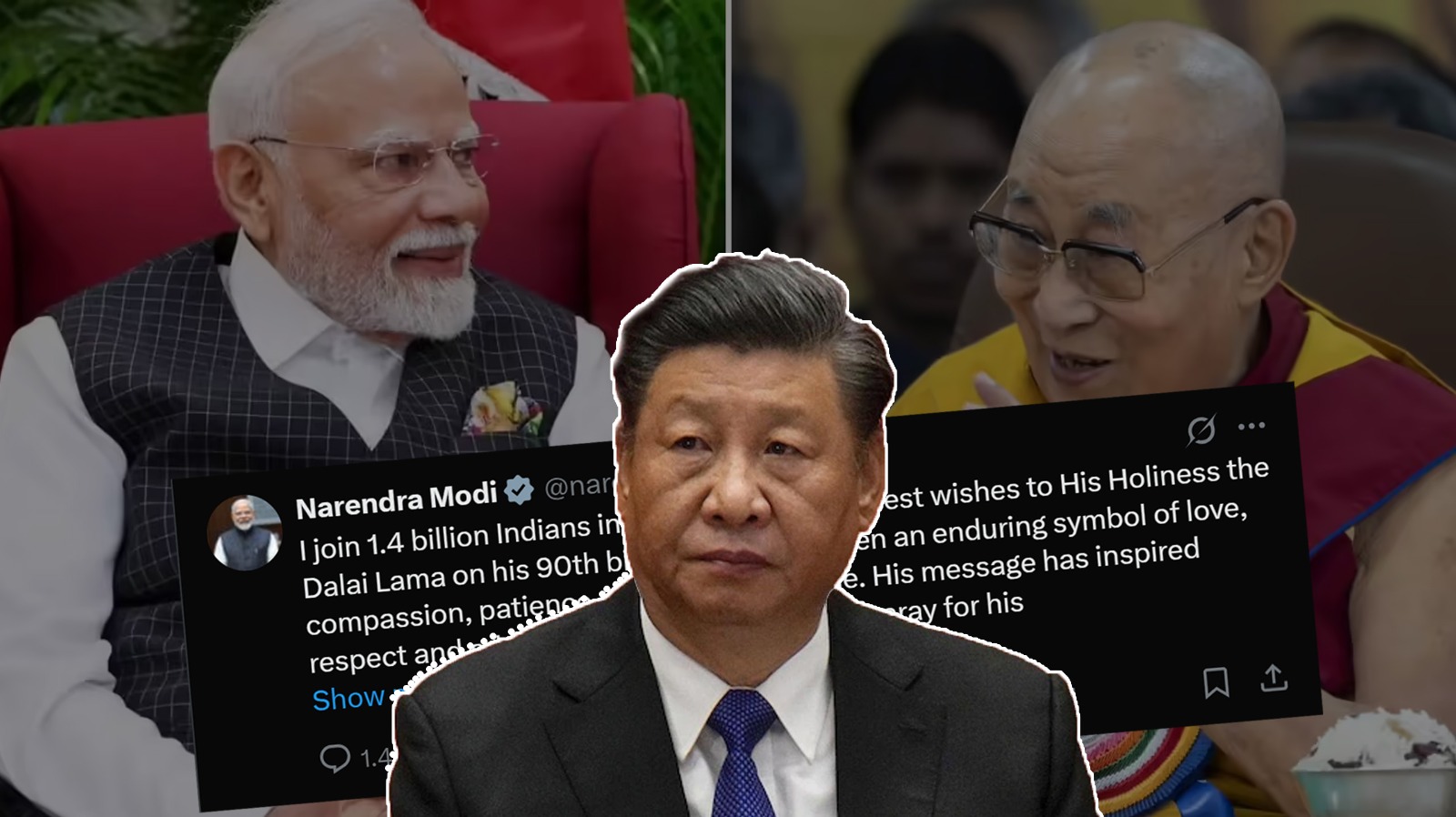
By Sulagna Halder
New Delhi, 8 July 2025:
After Prime Minister Narendra Modi and two Union ministers sent birthday greetings to Dalai Lama and participated in his 90th birthday, China has officially protested against India in New Delhi claiming that India was interfering in its internal affairs.
Mao Ning, a spokesman of the Chinese Foreign Ministry, responded, saying, The 14th Dalai Lama is a political exile, and has been long involved in anti China separatist activities, and tries to detach Xizang and China in the name of religion. She encouraged India to read before their eyes the anti China character of 14th Dalai Lama and refrain using them as a grounds to intervene in domestic affairs of China.
The Indian government justified its move, basing on the observation that respect to freedom of religion is a constitutional right. The ministry of external affairs responded to these objections raised by China explaining that the greeting of Prime Minister Modi needs to be considered in the context of a policy of respect towards the Dalai Lama as having “no political leadership role,” but as a religious leader who had a following in India. The MEA once again said that India will not take sides in his succession and religion practices.
The additional fuel was put into the diplomatic row when India decided to send its own Union Ministers, Kiren Rijiju and Rajiv Ranjan Singh to the birthday celebrations in Dharamshala last weekend. The government at the event was represented by Rijiju who is a practising Buddhist, and he stated that the government had no right to meddle into the process of identifying the successor of the Dalai Lama and stressed on the spiritual independence of the Tibet leader.
Beijing has retaliated by warning that such statements will contaminate the fragile relations between the two nations, especially after recent attempts to normalise relations after the 2020 border clash. Mao reminded India to be cautious of its words and actions as far as issues pertaining to Tibet were concerned.
India further made it clear that the stance on using Dalai Lama is not political but a religious affair. Mirroring the claim of the MEA in support of India continuing to afford great respect to the role of the Dalai Lama as a religious figure, minister Rijiju noted, as he pointed out, that this was a religious ceremony and had nothing to do with politics.
Since 1959 the Dalai Lama, spiritual leader well known to the world with his Middle Way approach, which aims at autonomy rather than independence of the Tibet city has been residing in Dharamshala 218. Towards the end of June, he claimed that the Gaden Phodrang Trust, his governing institution, would be the sole institution to identify his reincarnation, a stand that was discounted by China immediately.
This diplomatic spat highlights the sensitivity that the Tibetan issue shows up as the flash point in Sino India relation. India continues to believe it is being driven by constitutional and religious ideals whereas China perceives that any appreciation towards and interaction with the Dalai Lama leadership to be interference in its domestic issues. Analysts indicate that the way New Delhi handles this dispute can affect current attempts to normalise relationships after several years of border skirmishes.
There is no sign that either party is preparing escalation and the exchange has put a long standing question in diplomacy in the spotlight, namely how India can preserve its spiritual commitments without compromising its diplomatic equilibrium with China. There will be elections in the two capitals and border talks are continuing which means that this incident may define the future relationship, political and religious between the two Asian powers.